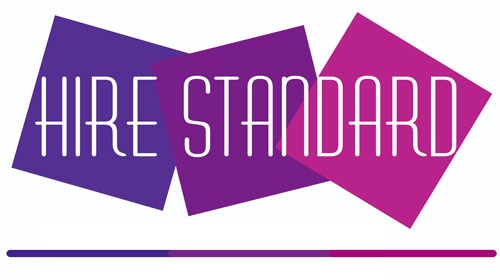CEO Chat
Helen H., CEO of
Hire Standard Staffing
Posted April 2017
Q: How did you start in the industry?
A: The 80s rocked (literally!) with an open culture and opportunities. Technical and functional expertise mattered less than in today’s competitive business climate. My first career was as a performing musician where I represented myself in business dealings. The “talent agent” side of my job required listening skills, the ability to search for jobs, to negotiate the terns of employment, as well as do basic accounting and contract generation. When it was time to transition, I spent 6 months in a university adult “career change” class which helped me focus on my core abilities. Then, I cold called companies to do informational interviews. Before long, I had two offers to train in HR recruiting and job placement. If I can do it, anyone can!
Q: Pros/Cons of working in the recruiting industry?
A: The variety of situations we encounter in recruiting is constantly evolving and always challenging. There is nothing like the feeling of making a targeted match between our employer clients and our multi-talented candidates. Knowing the company’s culture and introducing that client to their next employee is both art and science; it creates an incredible feeling of success and accomplishment. The downsides? I can think of two: one is the frustration when a company rep won’t heed our advice (which is in their best interest). The other one is knowing there are many great candidates we are unable to help even though we want to.
Q: Do you think recruiting is harder or easier compared to when you first started?
A: Today’s recruiting presents greater challenges than in prior years. As we have grown, our practice has diversified and requires us to learn the specifics of many areas and interact with various experience levels. Clients provide confidential data to us. We obtain performance-related information from candidate supervisors who are sometimes limited in what they can say. We simultaneously evaluate multiple technical skills and learn sensitive information about personal issues. Finding the balance between privacy and information disclosure is sometimes difficult.
Q: How have client needs/requests changed? What are some things that have remained the same?
A: Today’s clients are more savvy, technical, and value-oriented. They want the best ROI so they are precise and highly motivated to hire the best for their recruiting dollar. They are well-educated, busy people who face a challenge (sometimes several of them at once) and turn to us for creative solutions. Recruiting has matured: it is more targeted so naturally more demanding now. Another difference is that clients rely on us to evaluate the talent market, and whether their salaries and benefits are competitive.
Q: How has dealing with HR changed over the years?
A: Human Resources has gone through various iterations over several decades. Hiring was previously handled by Office Managers who had little HR training and acted as the contact person for the company. With increased regulation and developments in employment law, organizations upgraded their HR function, requiring PHR certifications and continuing education. Whether a dedicated Recruiting Manager or an HR Generalist, client reps oversee more compliance and data reporting while representing the hiring manager/executive and protecting the interests of the company.
Q: What are some complaints that you have heard from candidates/clients regarding recruiting firms?
A: Candidates often mention that companies with posted openings do not acknowledge their resumes or update them on position status. They tell us that recruiting firms often consider a “cast of thousands” so they feel like a number. Clients ironically complain they get too many resumes — many of them unqualified for the job — and that people seem to blast their resumes to every posted job without understanding the criteria. We focus attention on every job seeker and every client. We are not the biggest, but candidates and clients tell us their experience with Hire Standard is individualized, time-intensive, detailed, and personal…which makes us different, and, we hope, better!
Q: What are some clients/candidates expectations that are unreasonable?
A: Managing expectations is one of our biggest challenges. Our experience in thousands of interactions enables us to provide a clear assessment of each client’s and candidate’s situation in order to be partners in a successful outcome. Detailed discussions about short and long term goals as well as current situations and prevailing market conditions help to sharpen the picture. Everyone wants perfection, but all the players are human. Recent grads without experience seeking a $100K job or a company who wants a manager with 10 years experience on a $40K budget are not going to get what they want. We’re not miracle workers!
Q: What makes a good client? What makes a good candidate?
A: The same characteristics define great clients and great candidates: realistic, reliable, responsible, and receptive.

